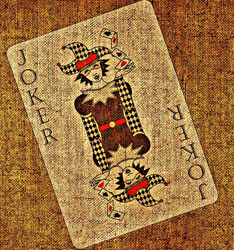Gambling as a Worldwide Culture
 The exact origins of gambling are somewhat unknown, although many voices say that even the Bible holds several references to similar activities, such as casting lots to determine something or to divide property. While it would probably be mission impossible to determine where and how gambling came to be, the initial versions of card and table games are said to come from China and certain parts of Europe. No surprise there, if you keep in mind the fact that once the Chinese people invented paper, the next step was to make paper money. Once they did that, it was only a matter of time before they went on to create the first set of paper cards.
The exact origins of gambling are somewhat unknown, although many voices say that even the Bible holds several references to similar activities, such as casting lots to determine something or to divide property. While it would probably be mission impossible to determine where and how gambling came to be, the initial versions of card and table games are said to come from China and certain parts of Europe. No surprise there, if you keep in mind the fact that once the Chinese people invented paper, the next step was to make paper money. Once they did that, it was only a matter of time before they went on to create the first set of paper cards.
The anthropology of gambling includes numerous studies and research publications which hint at a strong connection between the culture of a certain geographical region and the gambling habits of its inhabitants. Take the Asian countries, for example. It is said that the Chinese also invented the shuffling of cards, so perhaps this is why they have probably laid the first stone to card games such as Sic Bo, Pai Gow Poker, Fan Tan and many more. Asian people have an extremely well-developed gambling culture and in such countries, gambling is part of their long-time tradition.
On the other hand, many of the most popular casino games such as baccarat, craps, blackjack and roulette are said to originate from different parts of Europe. Nevertheless, the current versions of these games have suffered many changes over the years, after having been “adopted” by other regions. Roulette is such a game, which has undergone many changes, starting with the numbers on the wheel, the numbers and colours of the 0 slots; at first, there were two zeros – the single zero was red, while the double zero was black.
Poker’s popularity exploded in the beginning of the 21st century, thanks to the TV broadcasted poker shows and the availability of online sites. There are many types of poker games, some you play against the house, others against other players. The latter includes titles like the prolific Texas Hold’em, Omaha, Duke, Irish Poker, Pineapple Poker and many other variations of these games. Omaha and Irish Poker are pretty much the same. Unlike Texas Hold’em, these two games are played with 4 dealt cards and 5 community cards, instead of 2 dealt and 5 on the flop. What is different about Irish Poker is that, unlike Omaha, players are required to keep only 2 of the 4 cards or fold, once the flop is dealt, while at Omaha you have to use exactly 2 cards, but you can choose which 2 after you’ve seen the river. All card games that are played with community cards are extremely interesting and exhilarating to play. I wonder if the Chinese knew what they would start with the development of paper…?
